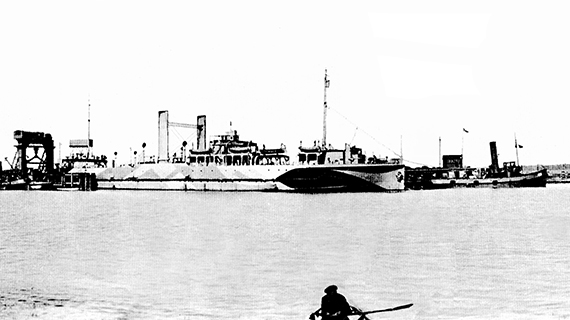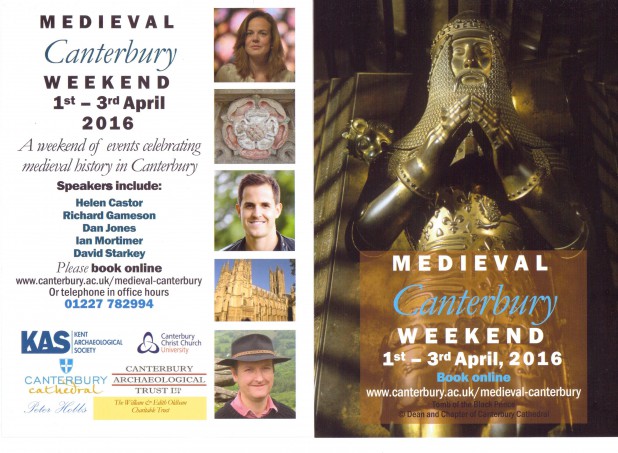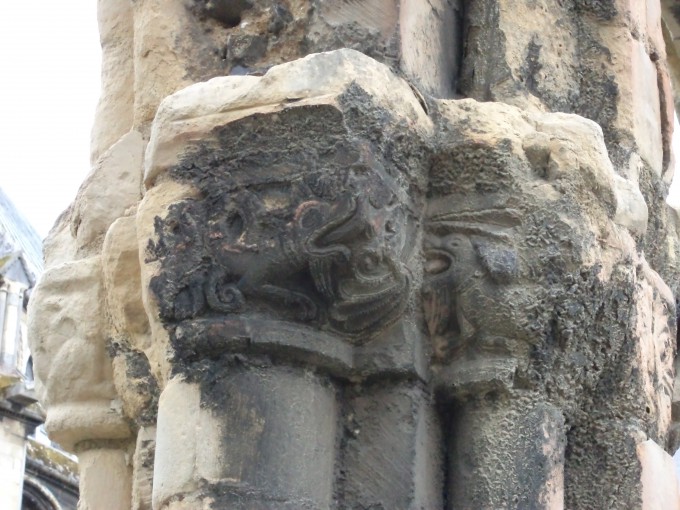Keeping with the idea of excitement at conferences among participants – speakers and audience, yesterday I was at the Centre’s ‘Richborough through the Ages’ conference, hence the photo above. Perhaps […]
Michael Hicks at the Medieval Canterbury Weekend
In contrast to the previous fortnight, this week has been much quieter with regard to history lectures open to the public, except for Dr Martin Watts’ talk at St Peter’s […]
Kent History and Archaeology: exciting times
First some advance notice: Dr Lesley Hardy will be giving a lecture to the Lyminge Historical Society on Tuesday 3 November at The Tayne Centre at 7.30pm. She will be […]


